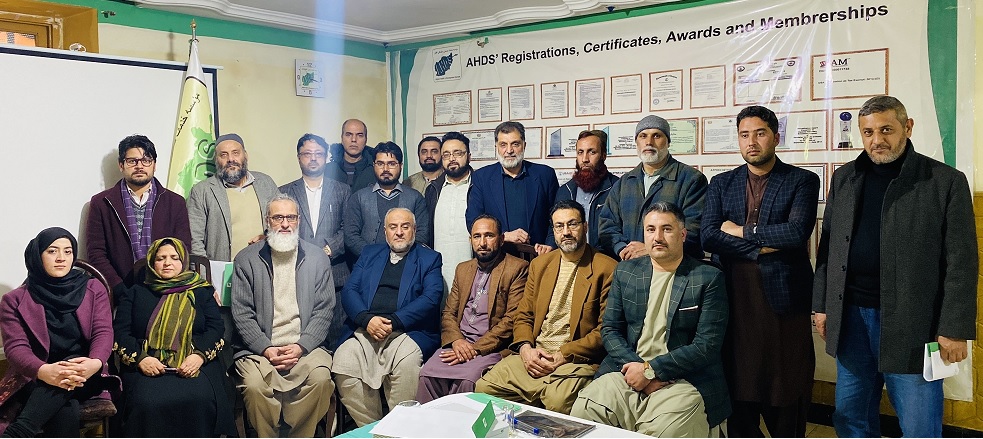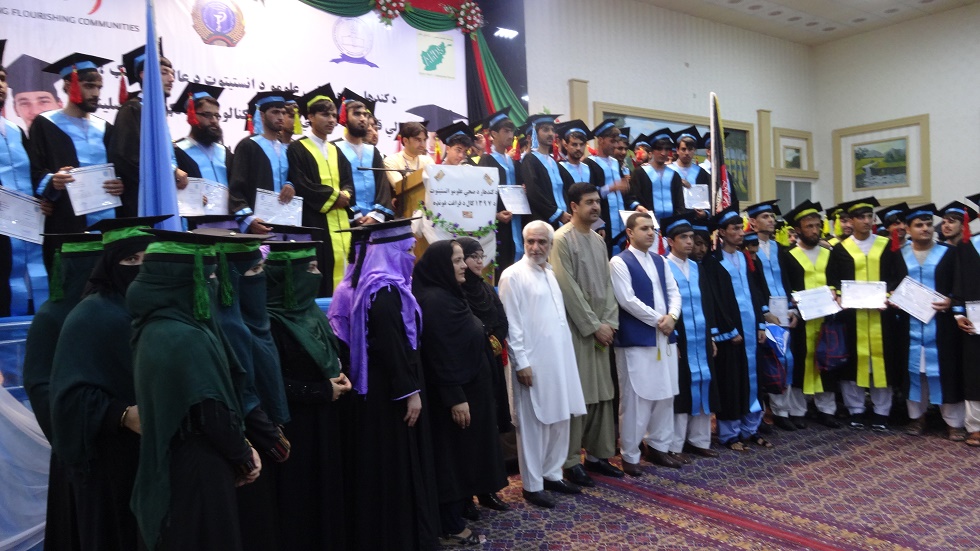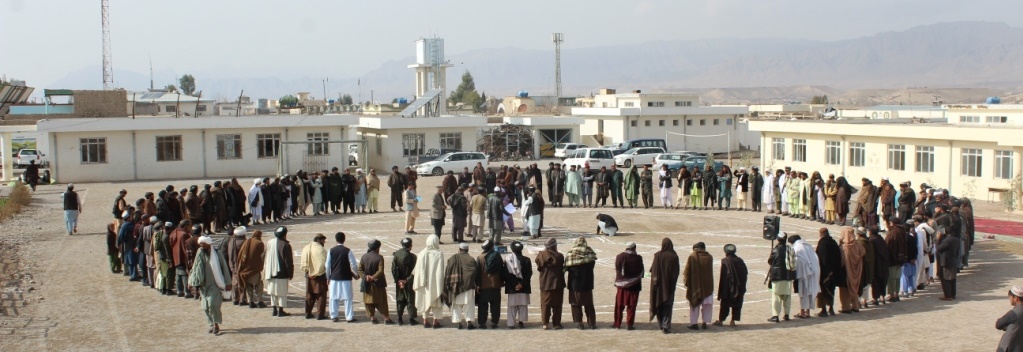AHDS in brief
Afghan Health and Development Services (AHDS) is a non-for-profit, non-governmental and non-political organization founded by Afghans on April 7th, 1990. AHDS is active member of Afghan NGOs Coordination Bureau (ANCB), Agency Coordinating Body for Afghan Relief (ACBAR) and Alliance of Health Organizations (AHO). AHDS is one of the first signatories of the Codes of Conduct for NGOs engaged in humanitarian action, reconstruction and development in Afghanistan.
Current Certificate of Registration of AHDS is valid till 23 Feb 2027. AHDS is registered as a national NGO with the Ministry of Economy – Afghanistan. The first registration number was 219 on 18 Nov 1999. After approval of NGO law, it was renewed as number 5 on 25 Aug 2005. AHDS is a tax exempted non-profit organization with TIN 100 005 5 010.

Motto
Goal
AHDS’ goal, as an active member of Afghan Civil Society, is to contribute in provision of humanitarian assistance and sustainable development for the people.
Vision
A healthy Afghan society that is socially and economically empowered!
Mission
We contribute to the Sustainable Development Goals (SDGs) by addressing healthcare and social & environmental determinants of health, considering the triple nexus (humanitarian, development and peace).
We contribute to the Sustainable Development Goals (SDGs) by addressing healthcare and social & environmental determinants of health, considering the triple nexus (humanitarian, development and peace).
Values
The Codes of Conduct for NGOs engaged in humanitarian action, reconstruction and development in Afghanistan, recommends the following principle values:
- Humanitarian principles (Humanity, Impartiality, Neutrality and Operational Independence)
- Do no harm
- Accountability
- Transparency
- Autonomy (independence)
- Equal opportunity (no discrimination)
Priority Interventions
To achieve its mission, AHDS has decided to intervene in the following priority areas during coming five years:
- Healthcare
- Nutrition
- Environment
- Community development
Geographic area
AHDS is willing to work in any province in order to serve various ethnic groups in different parts of Afghanistan.

AHDS has implemented humanitarian and development projects including healthcare with focus on women and children, immunization, nutrition, community development, education, emergency relief, water and sanitation, agriculture and livestock and the Citizens’ Charter.
AHDS has implemented more than 150 projects in Daykundi, Helmand, Kabul, Kandahar, Kapisa, Kunar, Logar, Nangarhar, Nimroze, Uruzgan, Wardak and Zabul provinces.
AHDS is dedicated towards and has supported organizational development, capacity building and system promotion at the national level. Activities of AHDS are well coordinated with national and local government authorities, community elders, and other stakeholders. Throughout the years, AHDS has had continuous presence and active participation in the task forces and workshops lead by the local and international agencies.
The secret of our success is related to our ability to reach peoples, gain their support and corporations and involve them in our efforts. Without critical support and collaboration from these communities, AHDS’ success would not be possible. Our experiences are indicative that by directly engaging and involving communities in our efforts and making them aware of their rights and responsibilities, we can ensure sustainable development.
AHDS has been enabled to serve millions of people, by tireless efforts of the staff and vigorous help of the supporters.
AHDS has been able to take firm strides in the areas of development and humanitarian services with continuous support from the donors and support of partners; sister NGOs, Ministry of Public Health (MoPH), Ministry of Economic, Ministry of Rural Rehabilitation and Development (MRRD), Ministry of Agriculture, Irrigation and Livestock (MAIL), local authorities and the community leaders. AHDS understands that Afghanistan has unique challenges and difficulties that require innovation and out of the box thinking.

We feel that sustainable development is possible only through persistence and continued perseverance in the face of difficulties. The national NGOs, more importantly the communities, have to take personal ownership and responsibility to see our country through this difficult yet promising time.
A major part of our success is due to the acceptance we have gained from the local communities and the cooperation they continue to provide. Without the critical support and collaboration of these communities AHDS’ success would not be possible. It is this idea that transcends the financial assistance coming from the international community, and stresses the importance of communities assuming the kind of practical, on-the-ground responsibility for the continuing improved health of this and future generations. Without a sense of personal responsibility in the local communities to complement the broader social responsibility of the international community, the sustainability of reconstruction efforts such as ours will be at great risk. There is no doubt that Afghanistan is not ready to be free of international assistance. But without local Afghans accepting personal responsibility for the on-going health of the members in their community, it will be impossible for the country to prosper.
AHDS gained the art and science of how to work in difficult area in terms of geographical, traditionally conservativeness and conflict. Conflicts do not only cause security risks, but simultaneously deteriorate availability of qualified staff, proper living conditions and attractiveness for professional staff from other places; while traditional conservativeness adds on that challenges.
